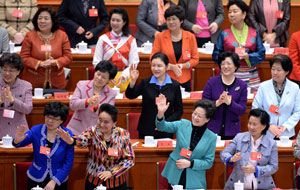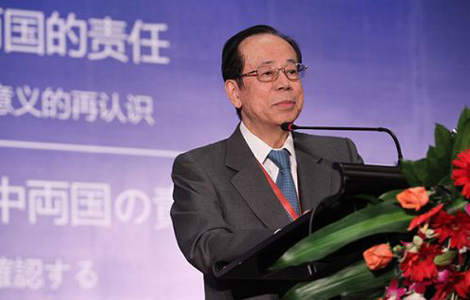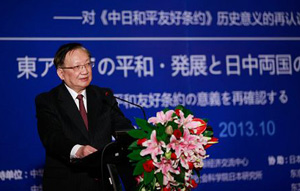Law to curb multinationals' double standards
Updated: 2013-10-29 21:30
(Xinhua)
|
||||||||
BEIJING - China's newly revised consumer rights law, which tightens the liability of businesses, may help prevent multinationals from applying double standards on Chinese consumers, said a legal expert here on Tuesday.
The revision to the law on consumer rights and interests was adopted by China's top legislature on Friday. It is the first such change since the legislation was adopted in 1993.
The revision has introduced a number of new ideas and practices in protecting consumer rights and kept up with international practice, said Prof. Liu Junhai, of the Law School at Renmin University of China, in an interview with Xinhua.
For instance, it first regulates how manufacturers should recall their faulty products. It also eases conditions under which consumers can ask to return, change or have merchandise repaired.
The law bans dealers from forcing consumers to make purchases or imposing unfair and unreasonable conditions, in such forms as articles in contracts and notices at their shops.
"On several occasions, I have been told by foreign businessmen that their companies applied different policies on Chinese consumers from those in their own countries because Chinese laws did not ask them to raise standards," Liu said.
Now, with the new law setting higher standards, they will have to follow, he said.
Multinationals have been caught in several controversial consumer rights disputes in recent years.
In March, Apple was accused of offering discriminatory after-sales services in China by China Central Television (CCTV), the country's national broadcaster. The report triggered waves of criticism and led Apple Inc. CEO Tim Cook to apologize in April.
Last week, CCTV also carried reports questioning US coffee chain Starbucks' pricing policy in China and about a fault with electronics giant Samsung's smartphones.
Liu praised the levelling effect the law will have on enterprises doing business in China, saying, "It is not only about foreign companies. It is about every player in the Chinese market. The revised law enhances consumer powers. The tougher consumers are, the more competitive the business will be."
The revised law also endorses higher compensation for consumers and imposes heavier fines on business owners who violate consumer rights.
At a press conference after the revision was adopted, Jia Dongming, head of civil law under the Commission for Legislative Affairs of the NPC Standing Committee, said that one reason for the revision is the need to boost consumer confidence.
"If people feel secure and are more inclined to spend, that means more revenue, more profit and domestic demand will expand. The whole country will benefit," according to Jia.
 Hot air balloons loom high on tourist horizon
Hot air balloons loom high on tourist horizon
 Ellis Island reopens for 1st time since Sandy
Ellis Island reopens for 1st time since Sandy ABC apologizes for 'Kimmel' joke
ABC apologizes for 'Kimmel' joke Lang Lang named UN Messenger of Peace
Lang Lang named UN Messenger of Peace
 Snowfall hits many areas of Tibet
Snowfall hits many areas of Tibet  Antiquated ideas source of Abe strategy
Antiquated ideas source of Abe strategy
 Storm wrecks havoc in S Britain, leaving 4 dead
Storm wrecks havoc in S Britain, leaving 4 dead
 Women's congress aims to close income gap, lift status
Women's congress aims to close income gap, lift status
Most Viewed
Editor's Picks

|

|

|

|

|

|
Today's Top News
Hawaii debates over gay marriage legalization
Kerry urges Iran to show nuke program peaceful
Albright counsels fact not myth in relations
Is Obama's lack of transparency really his fault?
San Diego Symphony debuts at Carnegie
Lang Lang takes on UN `Messenger of Peace’ role
Fonterra botulism scare laid bare in board inquiry
At 72, China's 'Liberace' still wows fans
US Weekly

|

|







